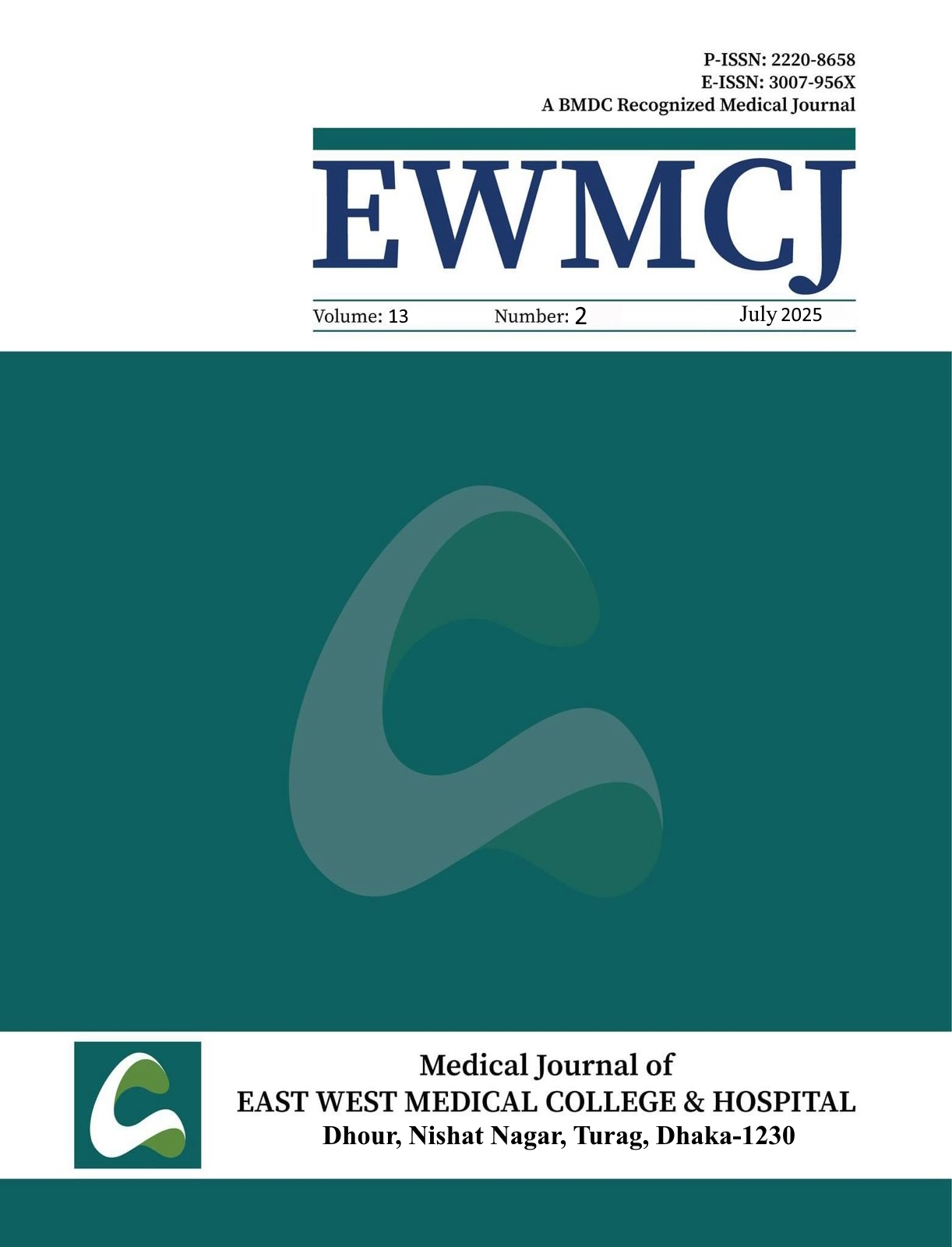Variations in the Shape of the Foramen Ovale in Dry Ossified Human Middle Cranial Fossa
DOI:
https://doi.org/10.3329/ewmcj.v13i2.79326Keywords:
Foramen Ovale, Shape, Middle Cranial FossaAbstract
Background: The foramen ovale acts as the passageway for neurovascular structures which pass from the middle cranial fossa into the infratemporal fossa. The mandibular nerve and accessory meningeal artery passes through this foramen. Foramen ovale is important in functional cranial anatomy. Anatomical awareness of variations in the shape of the foramen ovale in middle cranial fossa are important for the neurosurgeons, who operate in this area, and radiologists who interpret imaging for this area. The study was planned to observe the shape of the foramen ovale. In this study different shapes of foramen ovale were carried out in both right and left middle cranial fossa. Then the results were compared between right and left middle cranial fossa.
Objective: To evaluate the different shapes of the foramen ovale.
Materials & Methods: A cross-sectional, analytical type study was conducted in the Department of Anatomy of Dhaka Medical College, Dhaka from January 2011 to December 2011. The study materials consists of 117 (one hundred and seventeen) dry ossified human middle cranial fossa.
Results: The most frequently observed was ovoid foramen ovale and minimum observed was round. Elongated and kidney shaped were not found. There were difference in shape of the foramen ovale in right and left middle cranial fossa but statistically were not significant (p<0.05).
Conclusion: This study is of clinical and anatomical significance to medical practitioners in cases of trigeminal neuralgia and in diagnostic detection of tumours and abnormal bony outgrowths. The present study was planned to observe the shape of the foramen ovale to establish a baseline data of our own for future studies and to guide the neurosurgeons and radiologists to adopt appropriate plans for diagnosis and treatment of respective fields.
EWMCJ Vol. 13, No. 2, July 2025: 115-120
172
129
Downloads
Published
How to Cite
Issue
Section
License
Copyright (c) 2025 Zannatul Ferdous, Shamim Ara, Sharmina Sayeed, Sadia Rahman, A H M Mostafa Kamal, Shakil Shams, Md Humayun Rashid

This work is licensed under a Creative Commons Attribution 4.0 International License.




